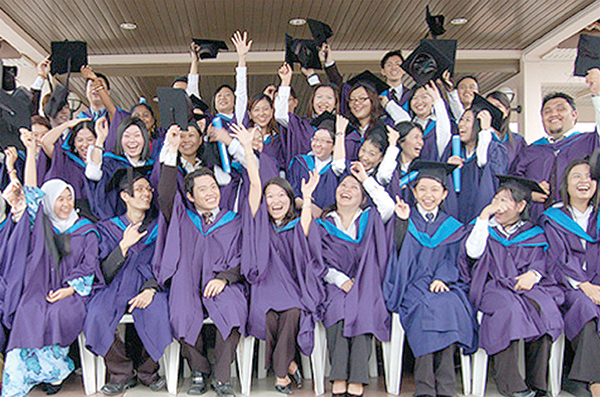1.2m M’sians are doing higher studies
Published on: Wednesday, August 14, 2019
By: David Thien

KOTA KINABALU: The 12th Malaysia Plan is dubbed ‘The Way Forward’ for Malaysia’s education system. The focus of the Higher Education Department of the Ministry of Education is to tout ‘Education as an Industry’ as it is a crucial contributor to boosting the GDP of Malaysia dependent on quality human resource.
The watershed for the new prong is from the end of the 11th Malaysia Plan and the beginning of the 12th Malaysia Plan.
ADVERTISEMENT
Since 2015, the first wave was to build momentum and lay foundation, and from 2016 to next year 2020, the second wave momentum seeks to accelerate system improvement and a change in the Federal Government regime happened, but the same civil service remains intact for the next wave which is supposedly to move towards excellence with increased operational flexibility from 2021 to 2025, now under new leadership.
Prime Minister Tun Dr Mahathir Mohamad said urgent response was needed for Malaysia to create, adopt, and integrate distinctive technological solutions to transform the workforce and industries.
In order to fully manifest the technological innovations within Malaysia’s economic framework, a symbiotic relationship of sorts must be formed between relevant government agencies and the private sector, that are helming the economy.
The new Minister of Education was supposed to be the current Prime Minister Tun Dr Mahathir Mohamad but his party coalition pressured him to cede the job to Dr Mazslee Malik.
ADVERTISEMENT
The Ministry of Education in meeting the challenge is “Reinvigorating the Malaysian education landscape to prepare for Malaysia’s future generation by design and no longer by chance
At least now the Ministry is more receptive to Unesco’s definition of tertiary education:
ADVERTISEMENT
* Tertiary education builds on secondary education, providing learning activities in specialised fields of education. It aims at learning at a high level of complexity and specialisation.
* Tertiary education includes what is commonly understood as academic education but also ncludes advanced vocational or professional education.
* Tertiary education comprises International Standard Classification of Education (ISCED) Level 5,6,7 and 8.
* Level 5 is short-cycle tertiary education, Level 6 is Bachelor’s or equivalent, Level 7 is Master’s or equivalent level, and Level 8 is doctoral or equivalent level.
However, the Malaysian 11-year schooling system gives problem with ISCED 5 Diploma level resulting in not all cohorts able to take Diploma as Higher Education towards having holistic, entrepreneurial and balanced graduates with talent excellence making up a nation of lifelong learners.
The system, according to the Ministry of Education, needs to have enablers with learned values-driven talent like quality TVET graduates, financial sustainability, empowered governance, innovative ecosystem, global prominence, globalised online learning and transformed Higher Education delivery for the desired outcomes.
Some 1.2 million Malaysians are studying in Institutions of Higher Education. There are 20 public universities, 36 polytechnics, 102 community colleges, 27 teachers training colleges, 15 matriculation centres, and 449 private educational institutions in Malaysia prior to the 12th Malaysia Plan.
The Minister in the recent past replied to complaints on public university admission figures that favoured Bumiputras by pointing out that Bumiputras were discriminated in private sector employment. And that they were a minority in private educational institutions in Malaysia and overseas.
From the Ministry of Education’s recent open public record, 209,511 students were enrolled in Unesco’s defined Diploma Level 5 to Level 6 which is Bachelor’s or equivalent course of study, 88,775 were Bumiputras (42 per cent) and 120,736 others (58 per cent).
Out of these 209,511 students, 131,052 studied in Malaysia, and 78,459 studied overseas.
In Malaysia, Bumiputra undergraduates outnumbered others 66,273 to 64,779, while overseas there were 22,502 sponsored Bumiputras to 55,957 others with 47,860 paying their own educational fees.
It was reported that Dr Mahathir stressed that despite all the technological disruptions that are threatening traditional jobs, the government is determined to create the future of Malaysia that was fair and humane, underpinned by shared prosperity.
“Furthermore, it has been projected that 65 per cent of today’s children, currently in primary education, will be working in jobs that do not exist today.
“As 70 per cent of our current workforce are SPM graduates, reskilling Malaysians of all ages is imperative to ensure success, within our economic landscape for the years to come,” he said.
Stay up-to-date by following Daily Express’s Telegram channel.
Daily Express Malaysia




